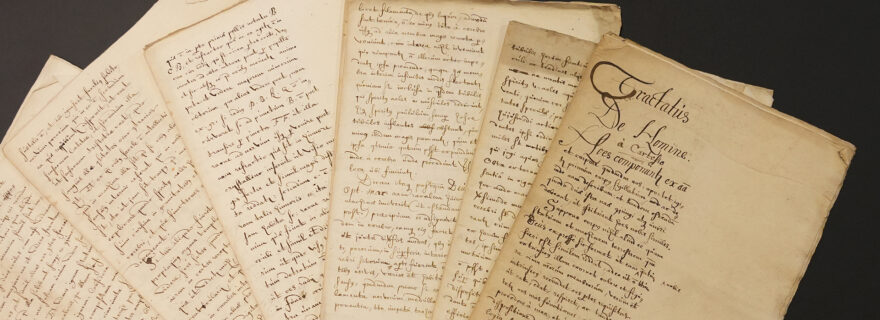An Unknown Latin Manuscript Translation of Descartes’ 'L’Homme'
A previously unknown manuscript of a Latin translation of Descartes’ L’homme has resurfaced in the collection of the UBL. A stunning discovery at a time of renewed interest in L’homme. Hopes are that the manuscript can help solve the problematic history of the text and numerous textual problems.
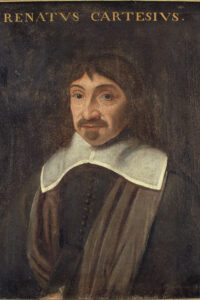

After hearing about the papal condemnation of Galileo in 1633, the French philosopher and scientist René Descartes (1596–1650) indefinitely shelved a work he was about to finish. He had no intention of suffering the same fate as the Italian scholar. Descartes’ book consisted of two parts, the first, Le monde (The World), a description of the natural laws that govern the material universe, and a second, L’homme (On Man), explaining the body of the humans that inhabit the world. In L’homme Descartes describes how the senses, sense perception, muscles, and the main organs function according to mechanical laws. Much attention is given to the neurophysiology of the brain, particularly the pineal gland, which, according to Descartes, is the little organ where the incorporeal mind interacts with the body.
In 1662 L’homme was published in a Latin translation (De homine) by Florentius Schuyl (1619–1669), who became a professor of medicine in Leiden two years later. In 1664 a French text appeared in Paris. These publications were the only sources until now. Recently, I found a manuscript of another Latin translation of L’homme in the archives of the Bibliotheca Thysiana, where it had remained hidden since the seventeenth century. It is the first-ever manuscript of L’homme/De homine to resurface and is therefore invaluable for answering the many questions surrounding the text's history. Above all, it is the long-sought key to solving numerous textual issues that puzzle the historians of philosophy, science and medicine.
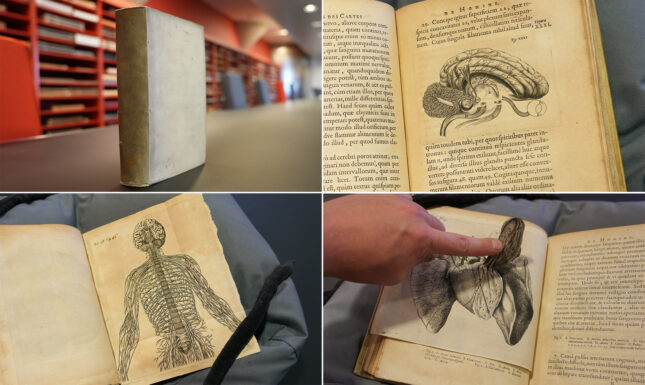

The manuscript, written in a single seventeenth-century hand, bears the title Tractatus de homine à Cartesio. The unidentified handwriting is clearly legible but the 96-page long text is ridden with abbreviations and contractions. Unfortunately, the last quire appears to be lost, resulting in a loss of about 18% of the text. Contrary to the Latin translation by Schuyl, the Latin text of the manuscript translates the original French text almost word by word, which enhances its value.
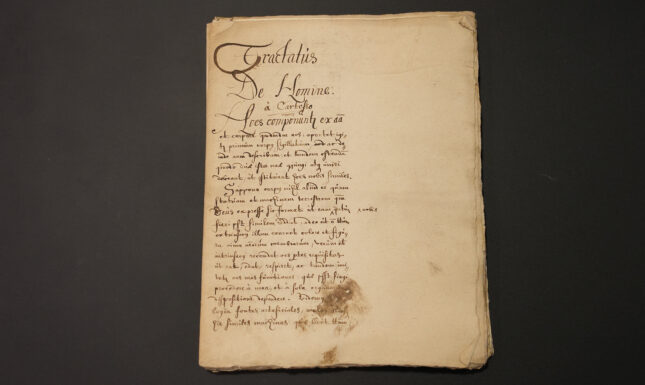

For his translation, Schuyl used several copies that circulated among Descartes’ friends in the Dutch Republic. The rediscovered manuscript undoubtedly used at least one such copy as well. The editor of the French edition from 1664 claimed he possessed the one and only ‘original’ text, but his claim has been called into doubt in recent years. Until now, however, there were no certain means to decide between the variants in the editions from 1662 and 1664. Any variant reading might be the result of Descartes’ own intervention, a mistake by one or more copyists, a printer’s mistake, an editorial intervention, or the interpretation of the translator. The presence of a third source, the Leiden manuscript, will narrow down these possibilities considerably, if not prove to be decisive in the choice of the correct reading.
The fact that the manuscript is found in the Leiden University Libraries is surprising. After the Bibliothèque Nationale de France, Leiden University Libraries hold the largest collection in the world of manuscript material pertaining to Descartes. Over the last 150 years, many researchers have visited the library to study them. There is, however, a simple explanation as to why the manuscript De homine was overlooked all these years: it is kept in the archives of the Bibliotheca Thysiana.
The Bibliotheca Thysiana was founded by testament in 1653 by Johannes Thysius (1622–1653). He left his private book collection and a legacy of 20,000 guilders for the building of a public library “for the public benefit of study”. The library, which still exists in its original state, and its collection are well-known to specialists, but its archives to scarcely anyone, until recently. The archives were formally transferred to the care of Leiden University Libraries in 2013; an inventory was ready in 2017 and came online shortly thereafter. The archives, which comprise fifteen linear meters of material, consist of papers relating to the building and maintenance of the library, but also contain the private archives of the Thys family and connected families. Descartes’ De homine received the inventory number ATH 1444.
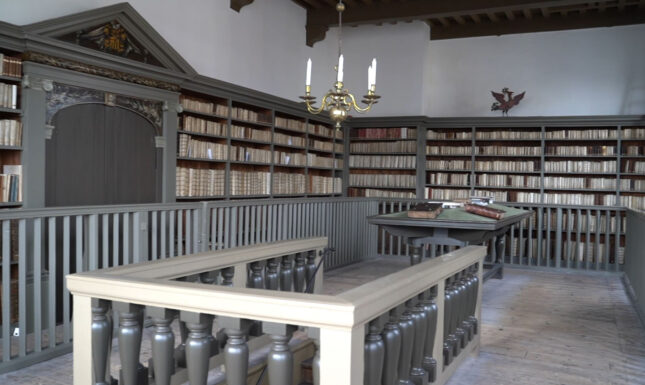

It is not (yet) clear how the manuscript ended up in the archives. Nor is there any certainty about who made the translation. Could it be the Leiden student Arnoldus Huyberts (1633–1716), who graduated Doctor of Medicine in 1652, who was possibly involved in an abandoned project to publish a Latin translation of L’homme in 1657, and whose anatomical skills were praised by the Leiden professor Johannes de Raey (1622–1702)? Or might it be De Raey himself, critical as he was of the translation published by Schuyl?
Descartes’ L’homme is a text that was neglected in modern times, as students of philosophy and science preferred his Discours de la méthode, the Meditationes, or the Passions de l’âme. But with the growing awareness that Descartes isn’t so much to be credited with introducing a dualism between mind and body, as an avid researcher into the unity between mind and body, interest in L’homme has greatly increased in the present century. The new manuscript could hardly have resurfaced at a more appropriate moment. Its publication with a critical assessment of the other two sources, which I am preparing, can raise the discussion and interpretation of the work to a next level.
__________
Dr. Erik-Jan Bos (Erasmus School of Philosophy) is a specialist of Descartes and Cartesianism and is involved in the NWO-project Decoding Descartes at Erasmus University Rotterdam.


